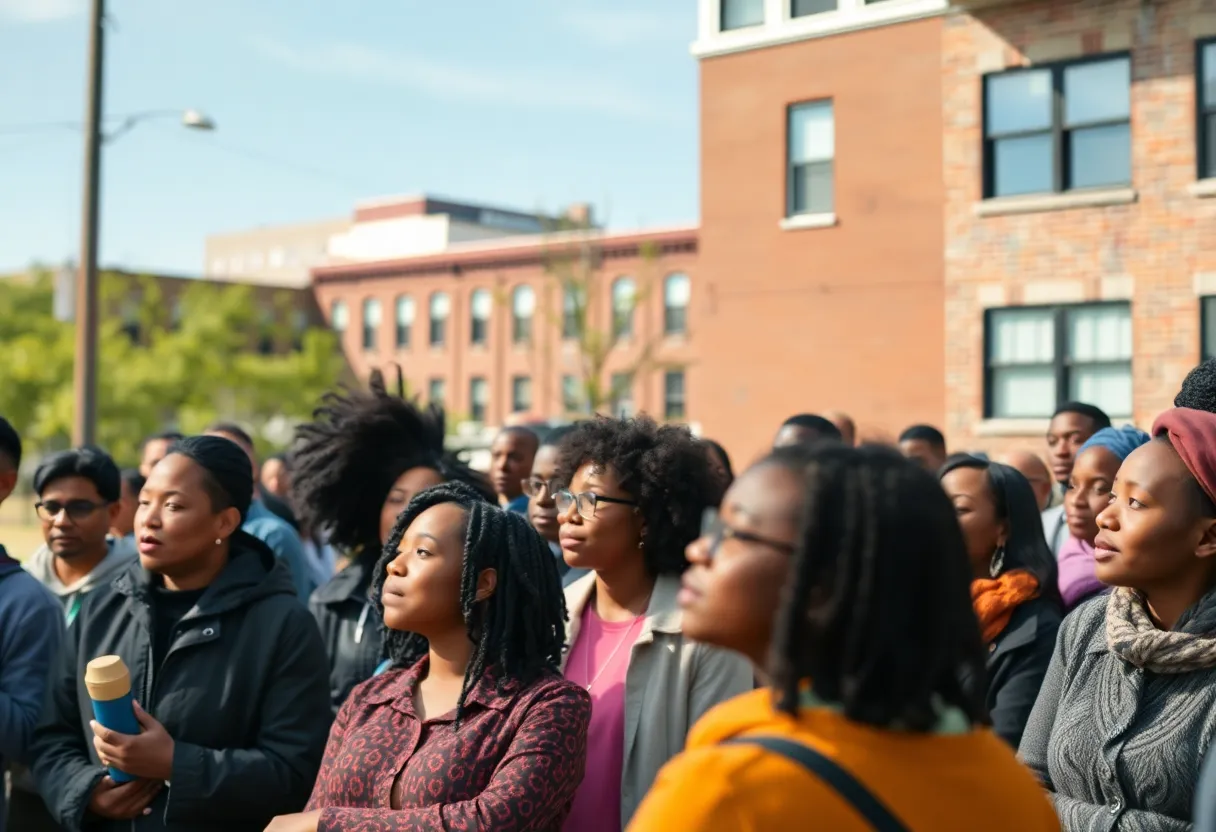News Summary
Residents from Baltimore’s Wyman Park and Remington communities are voicing strong opposition to Johns Hopkins University’s proposed Data Science and Artificial Intelligence Institute project. Their concerns center around a waiver that could undermine stormwater protections, risking the environmental integrity of local watersheds. The redevelopment could negate substantial taxpayer-funded improvements in the area, and ongoing flooding issues heighten residents’ fears of further detrimental impacts on local green spaces. Despite Johns Hopkins’s commitment to mitigate these concerns, the community remains vigilant about the project’s potential risks.
Baltimore residents from the Wyman Park and Remington communities are strongly opposing the new Data Science and Artificial Intelligence Institute (DSAI) project proposed by Johns Hopkins University (JHU). The main point of contention is a waiver JHU is seeking that would undermine existing stormwater protections during construction, leading residents to express concern over the environmental impact on local watersheds and their ongoing restoration efforts.
Community members argue that the project threatens to reverse millions of dollars spent on taxpayer-funded improvements, including over $10 million invested in the restoration of Stony Run. The ongoing flooding issues faced by residents compound these worries, as many believe additional development will worsen these problems and negatively affect local green spaces. This construction is expected to comprise two buildings near Wyman Park Drive and Remington Avenue, with a completion date projected for 2029.
Hillary Gonzalez, a key advocate for the BMoreAgainstDSAI campaign, has underscored the potential hazards posed by stormwater runoff and its implications for the surrounding environment. Residents have also raised alarms about possible chemical contamination from nearby construction projects, like the Agora Building, heightening their concerns regarding public health and safety.
In light of these criticisms, JHU has taken some measures in response to a recent city inspection, such as erecting a fence around the DSAI construction site to manage stormwater runoff more effectively. Furthermore, the university has indicated plans to upgrade stormwater management infrastructure, which includes a new stormwater line with a 20% increase in capacity and a 500,000-gallon rainwater cistern to address flooding concerns.
Importantly, JHU has reduced the size of the DSAI facility by 30%, bringing its total size down to approximately 476,572 square feet. The project is anticipated to create around 11,000 jobs and generate an economic impact of approximately $1.6 billion, positioning Baltimore as an emerging tech hub.
As part of its commitment to environmental protection, JHU has pledged to plant 300 new trees to replace those that will be removed during construction. Additionally, concerns regarding the potential impact on residential structures have prompted the university to offer structural surveys for homes in proximity to the project prior to any construction activity.
To address the residents’ concerns surrounding construction noise and increased vehicle traffic, JHU is implementing measures aimed at minimizing disturbances in the area. The university has engaged environmental consultants whose role includes monitoring the Stony Run Creek and surrounding wildlife to ensure protection throughout the construction process.
In an effort to keep the public informed and involved, Baltimore City has opened a comment period allowing residents to express their views and concerns about the DSAI project until October 10 at 4:30 PM. To date, JHU has held 14 community meetings over the past two years to discuss the project and gather feedback from residents.
The DSAI initiative aims to contribute significantly to advancements in healthcare, science, and technology, and has been promoted by JHU as a means to drive economic growth while fostering innovation within the community. However, the push for progress faces significant resistance from local residents who remain vocal about their environmental concerns and desire for sustainable development.
Deeper Dive: News & Info About This Topic
HERE Resources
Additional Resources
- CBS News: Johns Hopkins DSAI Development
- Wikipedia: Environmental Impact Statement
- The Banner: Johns Hopkins AI Center
- Google Search: Johns Hopkins environmental impact
- Baltimore Fishbowl: Structural Surveys Offered by JHU
- Encyclopedia Britannica: Stormwater Management
- WMAR2 News: Controversy Over JHU AI Institute
- Google News: Johns Hopkins DSAI
Author: STAFF HERE NEW YORK WRITER
The NEW YORK STAFF WRITER represents the experienced team at HERENewYork.com, your go-to source for actionable local news and information in New York, the five boroughs, and beyond. Specializing in "news you can use," we cover essential topics like product reviews for personal and business needs, local business directories, politics, real estate trends, neighborhood insights, and state news affecting the area—with deep expertise drawn from years of dedicated reporting and strong community input, including local press releases and business updates. We deliver top reporting on high-value events such as New York Fashion Week, Macy's Thanksgiving Day Parade, and Tribeca Film Festival. Our coverage extends to key organizations like the Greater New York Chamber of Commerce and United Way of New York, plus leading businesses in finance and media that power the local economy such as JPMorgan Chase, Goldman Sachs, and Bloomberg. As part of the broader HERE network, including HEREBuffalo.com, we provide comprehensive, credible insights into New York's dynamic landscape.





